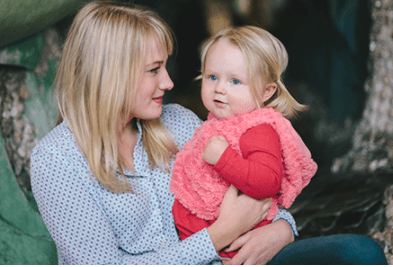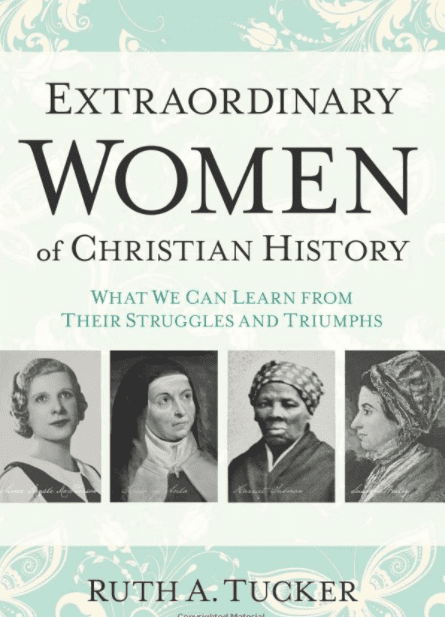 By Tim Krueger
By Tim Krueger
Tim Krueger is the editor of Mutuality magazine
and is publications coordinator at CBE International.
He was raised in the Philippines and studied history
and Bible at Bethel University (MN).
He and his wife, Naomi, have a son and live in Saint Paul, MN.
In April of 2017, the hashtag #ThingsOnlyChristianWomenHear went viral on Twitter.
Thousands of women took to social media to share painful things they’d been told by other Christians. One woman shared this:
“Sure, women are equal to men, but I still believe they’re different.”
Most, if not all, egalitarians have heard this before. Critics consistently accuse us of trying to erase gender differences. I’m almost surprised when someone doesn’t assume that because I’m egalitarian I think men and women are exactly the same.
If you’ve never read this book, it’s time.
Discovering Biblical Equality: Complementarity without Hierarchy
ed. by Pierce, Groothuis, Fee
You don’t have to look farther than the Christian blogosphere for the logic behind this myth. At least among American Christians, the same argument appears over and over: Feminism pulled the thread that is unraveling the moral fabric of society. Power-hungry women wanted what men had, so they stepped into men’s spheres. The culture jumped on board, and now our society sees men as worthless, so much that men are trying to become women. Because of feminism, our God-given gender has become meaningless, expendable. Feminism is ultimately a rebellion against God’s created order, which is for our flourishing. Egalitarians are just Christians who have fallen into the feminist trap. They are complicit in erasing gender and undermining a biblical worldview.
I won’t dive into the faults in this reasoning (and there are many) here. Instead, I will try to offer a straight answer to the question, what do egalitarians think about gender differences?
We egalitarians are a critical and free-thinking lot, and we have our differences. I can only honestly say what this egalitarian believes, but I do think most would agree with these five points.
1. Equality is not sameness
First, let’s define “equality.” Where better to start than the dictionary? Merriam-Webster lists several definitions of “equal.” If, like most people, you read “Merriam-Webster defines…” and tune out, stay with me. Definitions matter. How we understand “equality” relates to how we understand gender differences. The primary definition has three parts:
a (1): of the same measure, quantity, amount, or number as another (2): identical in mathematical value or logical denotation: equivalent
b: like in quality, nature, or status
c: like for each member of a group, class, or society
Can equal mean identical? Yes, if we’re talking about math, but we’re not. What if we’re talking about the way God created women and men to coexist?
Let’s try definition b: like in quality, nature, or status. That sounds more like it. Women and men are alike in their quality and their nature. Both bear the image of God. Both are fully human. Both have the same status before God. On this, complementarians and egalitarians agree! (In this, we both break with church tradition.)
We disagree on the implications. Complementarians believe the Bible outlines a gender-based hierarchy that forbids a woman holding authority over a man. Egalitarians believe the Bible demands equal treatment of women and men in relationships and institutions. That is, in the sense of definition c: like for each member of a group, class, or society.
So, egalitarians believe the Bible promotes two senses of equality: equality of nature and equality of opportunity. Neither requires or even hints that women and men are or should be identical.
Egalitarians don’t deny difference, we deny that difference is destiny.
2. There are differences, on average
There are clear differences between male and female. Different DNA. Different genitalia and reproductive systems. Other differences are obvious but less universal. Males are generally taller with more muscle strength. Females are generally shorter with less muscle strength. But, these are only averages. Not in a million tries would I defeat a female athlete—professional, collegiate, or probably high school—in any feat of strength or athleticism.
When it comes to how women and men think and behave, things get fuzzier. Popular wisdom dictates such things as:
Men are more competitive and rational, and less emotional, than women.
Women are more cooperative, nurturing, and emotional than men.
Researchers do observe differences between men and women. However, it’s impossible to know whether they are innate or simply learned. Importantly, there’s more variability within sexes than between them.1 Differences exist on average, but any one person is unlikely to mirror the average. That matters.
I live in Minnesota, where the weather is erratic. “Today, we’re twenty degrees above/below average!” our meteorologists declare self-importantly. “So what?” I complain to my TV. Here, it can be forty degrees one day and eighty the next. Average them, and you get sixty, but that doesn’t help me. If I dressed for sixty degrees both days, I’d be too cold one day, too hot the next. The average does nothing to help me wear the right clothes.
Fixating on average gender differences is similarly unhelpful. It tells us nothing about the actual people in our lives. When we idealize the average, it goes from unhelpful to harmful. We dress the body of Christ for average, not actual, weather. We stifle each other’s unique gifts. We elevate a statistical, composite average “person” over the actual people that God created, gifted, and called.
Jesus ignored what tax collectors, zealots, prostitutes, Samaritans, centurions, the rich, the poor, men, and women were “supposed” to be. Instead he invited them to something greater. We obey God when we do the same.
3. Gender difference does not require gender roles
The truth is, this isn’t a question of sex or gender differences at all. Complementarians know that even the secular community recognizes differences. One complementarian leader writes:
Non-Christian scientists have recognized the bodily differences of the sexes. Anne and Bill Moir, for example, note that men have on average ten times more testosterone than women. Studies show that women use a vocabulary that is different enough from men’s to be “statistically significant.” We are distinct emotionally, too. The Scripture gives voice to this reality when it calls godly husbands to treat their wives as the “weaker vessel” and challenges fathers to not “provoke” their children (1 Peter 3:7; Colossians 3:19). These and other patterns constitute the markers of our manhood and womanhood. Our differences, as is clear, are considerable. They are also God given.2
Did you catch the last part? Observable differences are only symptoms of what really matters: manhood and womanhood. These are defined by so-called “roles” (men lead and provide; women submit and nurture). The symptom (differences) and condition (roles) are inextricably linked. To unlink them is to rebel against God’s design. This explains the alarm when egalitarians say gender roles are invalid.
But there is no cause for alarm. We acknowledge that differences exist, but we don’t believe they’re linked to God-ordained “roles.” This isn’t because we want to undermine God’s way. We honestly don’t believe “roles” are God’s design, and we want to be faithful to God and the Bible.
4. Gender roles aren’t the Bible’s (or God’s) way
If you’re an American evangelical, you’ve probably heard about biblical manhood and womanhood. It’s in sermons, blog posts, articles, podcasts, books, Bible studies, curricula, movies, music. Just about everywhere. Everywhere except the Bible, that is.
Sure, there are the favorite passages that supposedly teach God-ordained gender roles. Ephesians 5, 1 Timothy 2, Genesis 1–3, 1 Peter 2:1. The list goes on. We’re told that gender equality is a secular idea. Complementarianism is the Bible’s clear stance. Case closed.
Not so fast.
First, the passages in question are not simple. There’s no need for me to break down all the controversial passages here. Plenty of others have done it far better than I could. I will only say that when we consider literary and cultural context of the passages, translation issues, and the work of Jesus, a different picture emerges. A lot of these passages actually make a strong case for the full inclusion of women. The few restrictions are revealed as conditional, never meant for all churches or Christians for all time.
Second, it’s absurd to suggest that egalitarianism is tainted by culture, while complementarianism is straight from the Bible. Both are influenced by culture. Culture always interacts with the Bible and vice versa. No one views the Bible without a cultural lens.
The defining belief of complementarianism is that women and men are equal in worth but different in role. Despite what we’re told, this is not traditional at all. The “equal in worth” part is a flashy new idea like human rights and democracy. Until recently, the church taught that women were innately inferior to men. Even today, many people around the world believe the Bible clearly says that only men are created in God’s image, while women are created in man’s image. To most people in the world and in history, complementarianism would be a concession to Western, post-Enlightenment culture.
Are egalitarians influenced by our culture? Yes. Are complementarians? Yes. Culture always impacts how we read the Bible. We both take the Bible very seriously. We both work to make sure our cultures sharpen, rather than dull, our understanding. From creation through Jesus’ ministry and beyond, the biblical account is of a God who always calls his people to give up privilege and authority over others. The Bible undermines patriarchy and calls us to a better way.
5. Humanity before gender
When I’m asked to share marriage advice, I always make sure to say this: remember that your spouse is human before he/she is a man/woman.
Too many men dismiss the ideas, wisdom, needs, experiences, and feelings of women because they see gender before humanity. I have done it myself. When I write off my wife’s sadness or joy as her just “being a woman,” I don’t see the full humanity of the person I married. I prevent myself from learning from her, being inspired by her, loving God more because of her.
Awhile back I cracked open a Christian book on gender. It said:
At the core of who we are, we are gendered. Femininity or masculinity is so irrevocably and irreversibly embedded in our being that no one can accurately say “I am first a person and then male or female.” With the privileged excitement of destiny, we must rather say, “I am a male person, a man,” or “I am a female person, a woman.” Our soul’s center is alive with either masculinity or femininity.3
Yes, sex and gender are important. But first, we are human. Yes, there are differences between men and women, but first, we are human. Let’s stop idealizing differences and remember our shared humanity.
We are all tainted by sin and redeemed by grace. We serve the God whose Word celebrates women who broke all the rules—judges, prophets, warriors, queens. We follow the same Jesus who welcomed female disciples and praised women’s understanding and faith. We are empowered by the same Spirit that descended on women and men alike. The same Spirit that inspired the leadership of women like Lydia, Priscilla, Junia, and Phoebe. Who are we to stand in the way?
Notes
- For an in-depth discussion on male-female differences, see Mary Stewart Van Leeuwen, “Social Sciences Cannot Define Gender Differences,” Priscilla Papers 27, no. 2 (Spring 2013), online at https://www.cbeinternational.org/resources/article/priscilla-papers/soci….
- Owen Strachan, “Transgender Identity—Wishing Away God’s Design,” Answers in Genesis, March 15, 2015, https://answersingenesis.org/family/gender/transgender-identity-wishing-…
- Larry Crabb, Fully Alive: A Biblical Vision of Gender That Frees Men and Women to Live Beyond Stereotypes (Baker, 2013), 21–22. Emphasis added.
This article originally appeared in the print version of Mutuality as “Difference Is Not Destiny: 5 Things Egalitarians Believe about Gender Differences.”



















